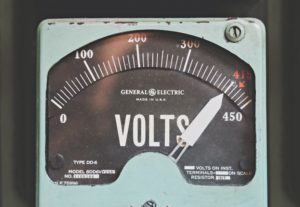A helpful guide for all multiple occupancy or HMO landlords and property managers.
- Tenancy Agreement: You must supply each occupier with a written statement of terms on which they occupy the HMO. This can be done in the tenancy agreement. An Assured Shorthold Room Only tenancy agreement can be used to ensure all rights and responsibilities agreed beyond those prescribed by law are as clear as possible.
- Tenant References: Referencing should be carried out for each tenant. This usually includes confirmation of the tenant’s basic information, previous or current employment details, addresses, bank statements and references from the current landlord.
- Rental Payment Set Up: It is recommended to collect the first month’s rent in advance alongside any deposit, and to confirm that subsequent rental payments have been set up.
- Professional Clean: A deep clean of the property prior to the move in of new tenants is recommended, especially areas such as the tub, toilet, stove, and refrigerator.
- Check-in Inventory: It is important to carry out an inventory before and after a tenancy to ensure that all items contained within the property and their condition are accounted for. It also lessens the chances of a deposit dispute further down the line.
- Licensing: Mandatory & Additional HMOs which have 3 or more storeys and are occupied by 5 or more persons forming 2 or more households will require mandatory licensing. A local public authority can also impose additional licensing with further regulations which could also apply to other HMO categories in its area. You must ensure that licences are kept up to date and that they are clearly displayed within the communal area along with the name, address and telephone number of the licensee or property manager of the premises.
- Right to Rent Checks: Landlords are required to ensure their tenants are not illegal immigrants and are consequently permitted to rent in this country.
- How to Rent Guide: This is required to be served to tenants in order to serve a valid Section 21 notice (a repossession notice) if required. Landlords should provide their tenants with an up-to-date document entitled “How to rent: the checklist for renting in England”, as published by the Department for Communities and Local Government, at the beginning of tenancies that start on or after October 2015 in England only. More information & guide available on https://www.gov.uk/government/publications/how-to-rent
- Deposit Protected: Any deposit you receive must be secured into a tenancy deposit scheme. There are three Government approved schemes – The DPS, The Dispute Service and MyDeposits.
- Deposit Certificate: You must give a copy of the deposit protection certificate to the tenant’s and any third parties that have contributed to the deposit, within 30 days.
- Deposit Prescribed Information: This is a requirement of the tenancy deposit protection scheme. Once the deposit is secured, you must provide certain information about the deposit and where it has been secured to tenants either as part of the Tenancy Agreement or on a separate form. The scheme that you secured your deposit with will have more information on this.
- Fire Safety Checks: Has a full fire safety risk assessment been conducted? Does the property comply with fire safety standards and are appropriate fire safety measures, such as fire blankets, alarms and extinguishers, in place and in good working order? All furniture a landlord provides must be fire resistant. Furniture must meet the fire resistance requirements in the Furniture and Furnishings (Fire) (Safety) Regulations 1988. Are fire procedure instructions clearly displayed, and are there adequate means of escape, free from obstruction and in good repair?
- Smoke & Carbon Monoxide Alarms: Alarms and Detectors must be installed and kept in good working order as required by any public authority or regulator. You must produce details of their positioning and proof that they are functioning correctly if requested by a relevant public body or regulator.
- Gas Safety Certificate: A valid gas safety certificate must be provided annually. A copy of the current gas safety certificate should also be displayed clearly within the communal area. You must provide this document if requested by a relevant public body or regulator.
- Electrical Safety Checks: Fixed electrical installations must be inspected and tested at intervals not exceeding 5 years by a qualified electrician. A certificate must be obtained and provided to the administrating authority if requested.
- Energy Performance Certificate (EPC): EPCs assess the energy efficiency and carbon dioxide emissions of your property with potential figures it could achieve. Any house that is rented requires a valid EPC. They are valid for 10 years and then the property needs to be reassessed for a new certificate. If energy efficiency improvements are made to the property, you can apply for a new EPC to achieve a better grade.
- Waste Disposal Provisions: Have appropriate refuse storage and disposal facilities been provided?
- Water Systems Checks: Is the water supply including tanks and cisterns maintained and in good working order and free from contaminants including legionnaires disease? Is the drainage system maintained and in good working order?
- General Maintenance Checks: Are common areas in good repair and decoration? Are common facilities and equipment in a safe and working condition?
- Overcrowding: No more than the maximum number of occupants, as stated in the licence, may live in the property. Adequate cooking, bathroom and washing facilities should be provide for the number of people living at the property.
This summary is provided as a general guide to what is expected when managing a rental property. It should not be relied on as legally complete or correct. It is important to ensure compliance with all local authority or regulatory requirements which could include rent regulations, maintenance standards and other obligations. You should always seek professional advice if you are unsure of your obligations.




